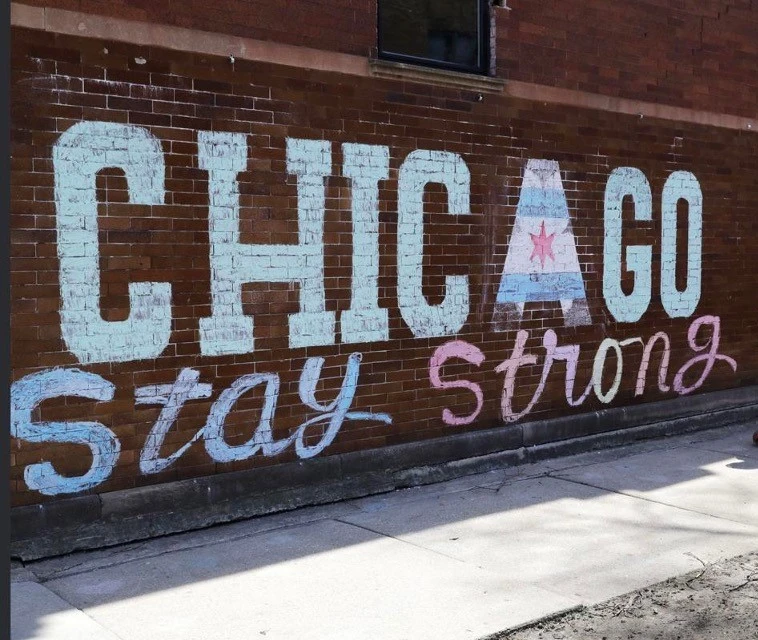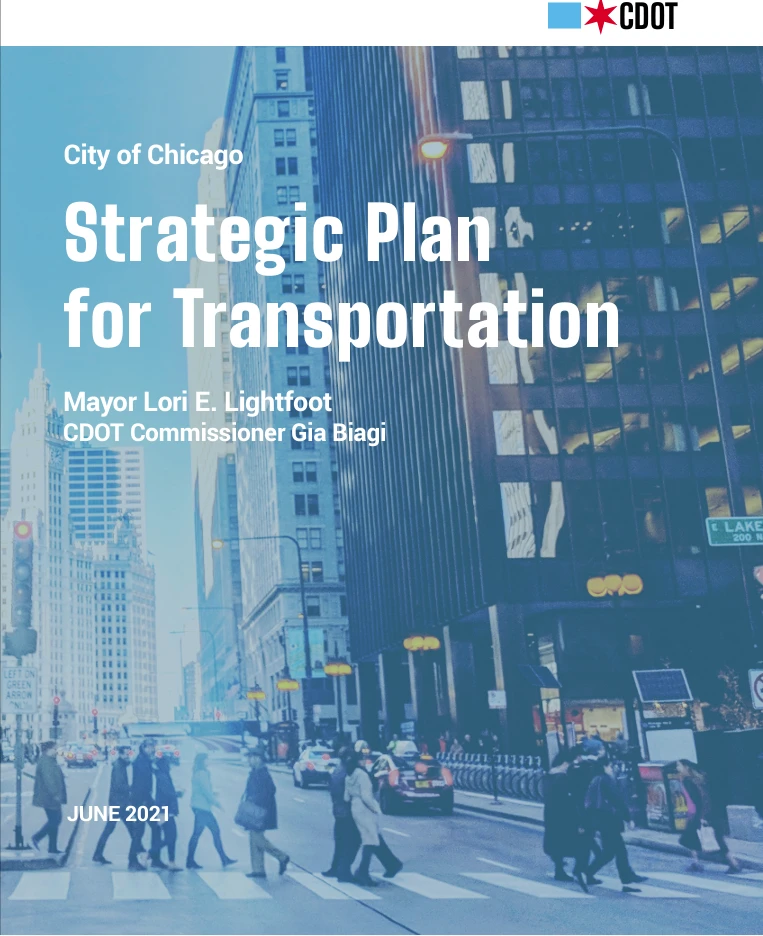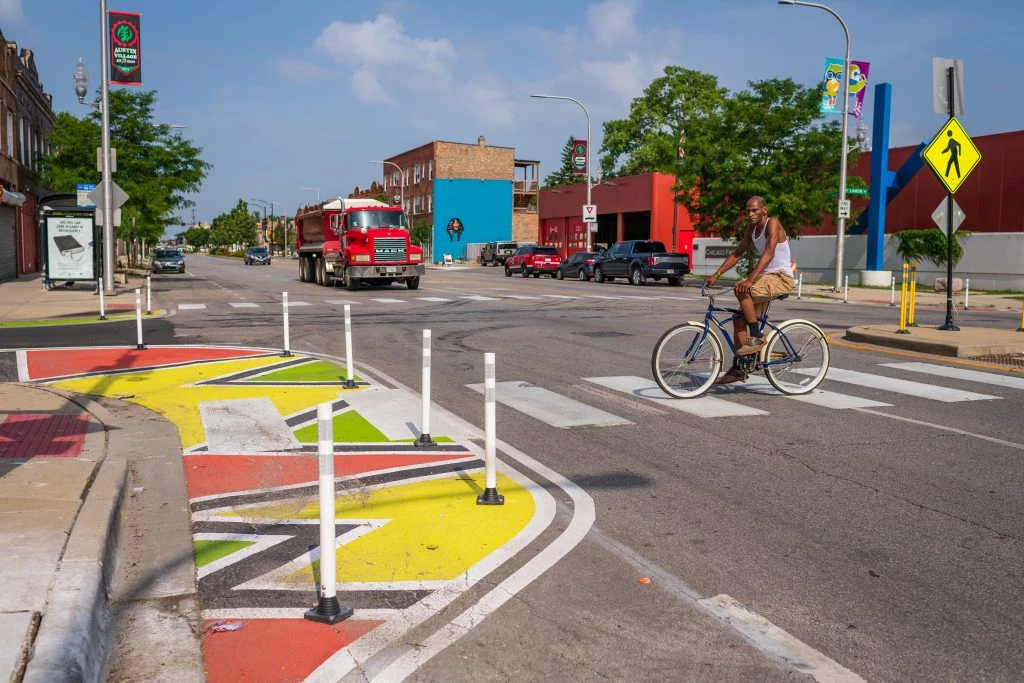Chicago
Defining Transportation Equity for Chicago
In the midst of the COVID-19 pandemic, Bloomberg Associates worked with the City of Chicago to produce a strategic plan designed to reframe the operations of the Department of Transportation and implement a new commitment to mobility justice for all residents.
Where you live in Chicago shouldn’t determine how much access you have to all the opportunities that the city has to offer. Streets are a resource for achieving a more equitable, sustainable and just future for our city, and we must act urgently to equip communities for a successful and just recovery.
Gia Biagi, Chicago Department of Transportation Commissioner
Relevant Expertise
Transform Streets and Mobility
- Bike Share and Cycling Infrastructure
- Road Safety
Challenge
Many of the communities that house Chicago’s lower-income residents offer the city’s fewest transportation choices, the longest commutes, and the worst vehicle pollution on their streets.
The pandemic only heightened these inequities as essential workers, many from these communities, still had to show up for work at stores, in warehouses, in hospitals and in restaurants around the city, despite facing increased difficulties getting there. With fewer car owners and minimal transit options in these historically neglected areas, residents also met greater obstacles when trying to quickly access necessary medical facilities, government services, and shops with supplies.
As City leadership strategized how to recover from the medical, economic, and racial justice challenges of 2020 and to set a course for the future success of Chicago, building a more equitable and reliable transportation system was a priority.


Approach
Bloomberg Associates partnered with the Chicago Department Of Transportation (CDOT) and its new Commissioner to design a vision for a system that focuses on equity and mobility and works to lower the economic and environmental burden of transportation on residents and communities, especially for people in poverty and those with disabilities.
The plan was developed with the Transportation Equity Network (TEN), a first-of-its-kind coalition of neighborhood organizations and local advocates who, by giving a voice to residents and stakeholders from historically underserved communities, proved vital in helping to shape an equity lens through which they were able to identify where and how the City’s transportation funds could best be allocated.
Through the development of a Mobility and Economic Hardship Index (MOBEC) that scores neighborhoods on their mobility access and income levels, the City is better prioritizing where and how their funds are spent.
Impact
Chicago was the first U.S. city to release a transportation plan in the wake of the many emergencies of 2020, focusing its attention on transportation equity and mobility justice. Launched in July 2021 at a streetscape groundbreaking on Chicago’s South Side, the strategic plan built by Bloomberg Associates and CDOT covers every aspect of the Department’s work, including internal management and operations, staff morale and development, cooperation with communities, accountability and transparency.
The plan is tagged to one- and three-year benchmarks, ensuring it will automatically be measured, reviewed, and held accountable. With focuses on increased access, safety, and community engagement, early successes resulting from plan-based initiatives have included modernizing more than 280,000 street lights throughout the City, upgrading bike lanes and installing new lightweight e-stations for an expanded bike sharing program, and welcoming more than half a million attendees to downtown street activations that created an economic impact of over $12 million. The City also committed new funding to its street repair program and leveraged existing funding to rebuild an additional 60 miles of streets using MOBEC.

Metrics
$12M+ in economic impact from new street activations
280,000 street lights modified